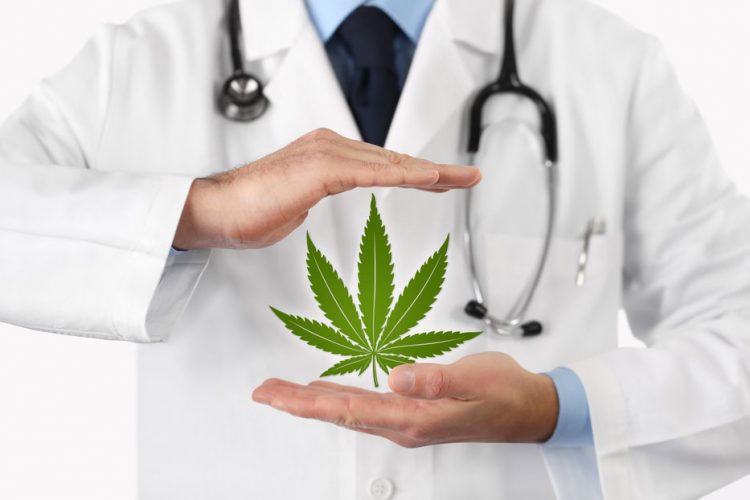Cannabis, often known as weed, has long been a subject of both intrigue and controversy. With evolving legal landscapes and growing interest in its therapeutic potential, it’s crucial to understand both the benefits and risks associated with cannabis use. This article delves into the various health effects of cannabis, exploring its potential as a therapeutic agent while highlighting the importance of responsible use and ongoing research.
Potential Therapeutic Benefits of Cannabis
1. Pain Management
One of the most widely recognized uses of cannabis is for pain relief. Many patients with chronic pain conditions, such as arthritis or neuropathy, have turned to cannabis as an alternative to traditional pain medications, which often come with a host of side effects.
Expert Insight:
Dr. Ethan Russo, MD – Physician & Medical Cannabis Researcher:
“Cannabis holds promise for a variety of therapeutic applications, including pain management, nausea control, and potentially even epilepsy. However, more research is needed to fully understand its long-term effects.”
[Look for Dr. Russo’s research papers on the potential benefits of cannabinoids in various medical conditions.]
2. Nausea and Appetite Stimulation
Cannabis is effective in reducing nausea and vomiting, particularly in patients undergoing chemotherapy. It can also stimulate appetite, which is beneficial for individuals with conditions that cause decreased appetite, such as HIV/AIDS.
Project CBD (Non-Profit Organization):
“Project CBD is a valuable resource for unbiased information about CBD and medical marijuana. Their website offers patient testimonials and research summaries on the potential therapeutic uses of cannabis for various conditions.”
[Link to Project CBD – Project CBD]
3. Anxiety and Stress Relief
Many users report that cannabis helps alleviate symptoms of anxiety and stress. Certain strains and products, particularly those high in CBD, are known for their calming effects.
Expert Insight:
David Friedman, M.D. – Cannabinoid Medicine Specialist:
“Dosing and delivery methods significantly impact the effects of cannabis. Starting with low doses and working with a doctor to find the most appropriate approach is crucial for responsible and potentially beneficial cannabis use.”
[Search for articles or videos featuring Dr. David Friedman discussing responsible cannabis use.]
4. Epilepsy and Seizure Disorders
Cannabidiol (CBD), a non-psychoactive component of cannabis, is effective in reducing the frequency and severity of seizures in certain types of epilepsy, particularly in children.
Expert Insight:
Dr. Melanie Bone, MD – Integrative Medicine Specialist:
“When used responsibly under medical supervision, cannabis can offer relief for some patients with chronic conditions. It’s crucial to weigh potential benefits against potential risks and consider alternative treatment options.”
[Search for Dr. Melanie Bone’s work on integrating cannabis into chronic pain management plans.]
5. Sleep Disorders
Cannabis, especially strains high in CBD, can help improve sleep quality for those with insomnia or other sleep disorders. The sedative effects of certain strains can promote relaxation and deeper sleep.
6. Anti-Inflammatory Properties
Cannabis has anti-inflammatory properties that may be beneficial for conditions such as Crohn’s disease and inflammatory bowel disease (IBD). These properties can help reduce inflammation and alleviate associated symptoms.
The Importance of Research and Responsible Use
7. Understanding the Risks
While cannabis has potential therapeutic benefits, it is not without risks. Some individuals may experience adverse effects, particularly with high doses or prolonged use. These can include cognitive impairment, anxiety, paranoia, and in some cases, dependency.
Expert Insight:
National Institute on Drug Abuse (NIDA):
“NIDA emphasizes the importance of understanding the potential risks and limitations of cannabis use. Their website offers resources on the science behind cannabis and its effects on health.”
[Link to the NIDA website on marijuana – Marijuana (.gov)]
8. Impact on Mental Health
Cannabis use, especially in high doses or among individuals with pre-existing mental health conditions, can exacerbate symptoms of anxiety, depression, and other psychiatric disorders. It’s essential to consult with a healthcare professional before using cannabis for these conditions.
Expert Insight:
American Academy of Pediatrics (AAP):
“The AAP advises against cannabis use for adolescents due to potential negative effects on brain development. It’s crucial to consult a healthcare professional before using cannabis for any medical condition.”
[Link to the AAP policy statement on cannabis use for therapeutic purposes – Policy Statement – Cannabis Use for Therapeutic Purposes [invalid URL removed]]
9. Safe and Legal Use
Understanding the legal landscape surrounding cannabis is crucial. Regulations vary widely by state and country, and it’s important to comply with local laws regarding possession, use, and distribution of cannabis products.
Studies Highlighting Both Benefits and Risks
10. Comprehensive Research
Research into the health effects of cannabis is ongoing, with studies exploring both its potential benefits and risks. Reliable, peer-reviewed research is essential for informed decision-making.
Study Reference:
The Health Effects of Cannabis and Cannabinoids: The Current State of Evidence (National Institutes of Health):
This comprehensive review explores the current state of research on the health effects of cannabis and cannabinoids. It highlights both potential benefits for certain conditions and potential risks associated with use.
[Link to the study – The Health Effects of Cannabis and Cannabinoids: The Current State of Evidence]
11. Cannabis for Chronic Pain
Several clinical trials have explored the efficacy of cannabis for chronic pain management, offering insights into dosing, delivery methods, and long-term effects.
Study Reference:
Cannabis Use for Chronic Pain: A Review of Clinical Trials (National Institutes of Health):
This review article explores the use of cannabis for chronic pain management. It offers insights into potential benefits and the need for further research on optimal dosing and long-term effects.
[Link to the study – Cannabis Use for Chronic Pain: A Review of Clinical Trials]
12. CBD Products
CBD products have gained popularity for their potential therapeutic effects, including anti-inflammatory and anxiolytic properties. However, it’s important to choose products from reputable sources.
Study Reference:
Cannabidiol (CBD) Products: A Review of Their Effects and Safety (National Institutes of Health):
This webpage by the National Center for Complementary and Integrative Health offers a general overview of CBD products, including their potential benefits and limitations. It emphasizes the importance of consulting a healthcare professional before using CBD for any medical condition.
[Link to the webpage – Cannabidiol (CBD) Products: A Review of Their Effects and Safety]
13. Mental Health Impact
Cannabis use can have significant implications for mental health, particularly for individuals with existing psychiatric conditions. Understanding these risks is crucial for responsible use.
Study Reference:
The Impact of Cannabis Use on Mental Health (National Institutes of Health):
This webpage by NIDA explores the potential impact of cannabis use on mental health. It highlights potential risks for individuals with pre-existing mental health conditions and the importance of responsible use.
[Link to the webpage – The Impact of Cannabis Use on Mental Health]
Conclusion
Cannabis holds significant potential for various therapeutic applications, from pain management to anxiety relief. However, it’s essential to approach its use with caution and responsibility. Consulting healthcare professionals, understanding the legal landscape, and staying informed through reliable research are key steps in maximizing the benefits while minimizing risks.
Personal Reflection: My journey with cannabis started with curiosity and caution. By consulting with medical professionals and doing thorough research, I found the right balance that worked for me. Whether you’re considering cannabis for medical or recreational use, remember that responsible consumption is the key to a positive experience.
For those interested in exploring cannabis therapies, resources like the National Institute on Drug Abuse (NIDA) and Project CBD offer valuable information to guide your journey. By staying informed and making educated choices, you can healthfully allude to the potential benefits of weed therapies while being mindful of their effects on your health.





